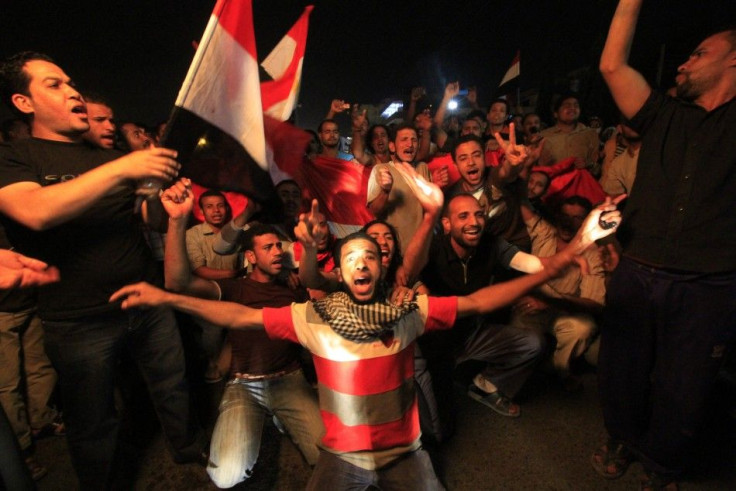Arabs hope change will sweep region after Mubarak

Arabs celebrated the fall of President Hosni Mubarak on Friday, praising the determination of Egypt's protesters and hoping their demands for change would echo through the Middle East.
Volleys of gunfire and fireworks erupted in the Lebanese capital Beirut, the Gaza Strip and the Yemeni city of Sanaa, while in the wealthy conservative Gulf states people quietly savoured the toppling of a second Arab autocrat in a month.
It's a beginning for democracy in the Middle East, said Gazal bin Mahfouz, a Saudi. People have a limit. It has been too long where leaders thought if they keep their people busy that nothing will happen.
Mubarak's 30-year rule was brought to a tumultuous end on Friday after weeks of protests across Egypt. His departure followed the fall of Tunisia's long-time leader Zine al-Abidine Ben Ali four weeks ago.
While the turmoil has alarmed leaders from North Africa to the Gulf, it has captivated many ordinary Arabs who never imagined they might hold their own destiny in their hands.
In the downmarket al-Azamiyah suburb of Damascus, Syrians lit fireworks. We're celebrating the triumph of the will of the people, one resident said.
He declined to say whether Mubarak's overthrow could affect Syria, ruled by emergency law for nearly five decades and led by a president who succeeded his father in power.
In the Gulf, home to workers from poorer Arab countries including Egypt and Syria which struggle to provide jobs for their young populations, the news was met with hope.
I'm so excited to see Mubarak step down. It's the beginning of a new era in our region, said Baraa Bakkar, originally from Syria, who was visiting Dubai from Saudi Arabia.
Governments in Syria and Saudi Arabia will change, but the background will be different. There will be no demonstration, but the regimes themselves will realise that it's time to go.
ARAB PRIDE
This is a new dawn, new stage. This is a new future painted by bloody hands of Egyptians and Tunisians that knocked on the doors of freedom, said Zaki Bani Rusheid, a leading Islamist figure in Jordan, where King Abdullah sacked his government 10 days ago after weeks of protests.
After today we can say we are Arabs with honour and pride.
Hundreds of people gathered in Beirut's Shi'ite southern suburb, a stronghold of Hezbollah which had tense ties with Mubarak. Loudspeakers played songs praising the Cairo protests and celebrating the departure of Egypt's pharaoh.
In Gaza Palestinians let off fireworks and shot into the air in celebration. The Islamist group Hamas called on Egypt's new rulers to change Mubarak's policies which included tight control over movement of goods into the coastal enclave.
At the Egyptian embassy in Yemen's capital of Sanaa at least 500 Yemenis and Egyptians marched with banners saying Long Live Egypt. Wake up rulers, Mubarak fell today, they shouted, hooting car horns and firing shots in the air.
A dictator falling is always great news, said Salim Alouane, a 34-year-old engineer in the Algerian capital, where government opponents are planning a protest on Saturday. I am very happy for the people of Egypt.
Amid the rejoicing, some expressed worries. We are going to suffer because there are too many people who want a piece of the cake, too many who want to seize power, said Mohamed Gameel, an Egyptian in Ajman, part of the United Arab Emirates.
In Iraq, where President Saddam Hussein was toppled by a U.S. invasion eight years ago, many welcomed Mubarak's departure. But for some it revived memories of the sectarian bloodshed which followed Saddam's overthrow.
It is true that Hosni Mubarak had many faults. But it is also true that Hosni Mubarak succeeded in building a country, said Wael Jassim al-Azawi, a shop owner in the Adhamiya district of Baghdad.
We wish that no deterioration will happen in Egypt and no power vacuum will happen, as happened after 2003 when the U.S. army entered Iraq.
© Copyright Thomson Reuters 2024. All rights reserved.




















